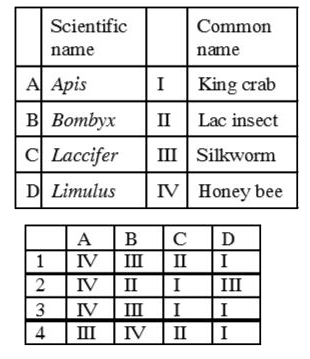The statement's which are true about antagonists from the following is are:
A. They bind to the receptor site.
B. Get transferred inside the cell for their action.
C. Inhibit the natural communication of the body.
D. Mimic the natural messenger.
Choose the correct answer from the options given below:
A. C and D
A and B
B only
A and C
To solve the question regarding the true statements about antagonists, let's analyze each statement one by one.
1. Statement A: They bind to the receptor site.
- Analysis: Antagonists are known to bind to receptor sites on cells. By doing so, they prevent the natural messenger (agonists) from binding and exerting their effects.
- Conclusion: This statement is true.
2. Statement B: Get transferred inside the cell for their action.
- Analysis: Antagonists do not typically enter the cell to exert their effects. Instead, they act at the receptor level on the cell surface.
- Conclusion: This statement is false.
3. Statement C: Inhibit the natural communication of the body.
- Analysis: One of the primary functions of antagonists is to inhibit or block the natural signaling pathways by preventing agonists from binding to their receptors. This effectively disrupts the natural communication processes in the body.
- Conclusion: This statement is true.
4. Statement D: Mimic the natural messenger.
- Analysis: Antagonists do not mimic natural messengers; rather, they block the action of these messengers. Mimicking the natural messenger is a characteristic of agonists, not antagonists.
- Conclusion: This statement is false.
Final Answer:
Based on the analysis, the true statements about antagonists are:
- A. They bind to the receptor site.
- C. Inhibit the natural communication of the body.
Thus, the correct answer is A and C.
- Analysis: Antagonists are known to bind to receptor sites on cells. By doing so, they prevent the natural messenger (agonists) from binding and exerting their effects.
- Conclusion: This statement is true.
- Analysis: Antagonists do not typically enter the cell to exert their effects. Instead, they act at the receptor level on the cell surface.
- Conclusion: This statement is false.
- Analysis: One of the primary functions of antagonists is to inhibit or block the natural signaling pathways by preventing agonists from binding to their receptors. This effectively disrupts the natural communication processes in the body.
- Conclusion: This statement is true.
- Analysis: Antagonists do not mimic natural messengers; rather, they block the action of these messengers. Mimicking the natural messenger is a characteristic of agonists, not antagonists.
- Conclusion: This statement is false.
Based on the analysis, the true statements about antagonists are:
- A. They bind to the receptor site.
- C. Inhibit the natural communication of the body.
Topper's Solved these Questions
Similar Questions
Knowledge Check
- Question 1 - Select One
Match the following columns and choose the correct answer from the options given below
 Aa-iv, b-i, c-ii, d-iiiBa-iv, b-iii, c-i, d-iiCa-i, b-ii, c-iii, d-ivDa-iv, b-iii, c-ii, d-i
Aa-iv, b-i, c-ii, d-iiiBa-iv, b-iii, c-i, d-iiCa-i, b-ii, c-iii, d-ivDa-iv, b-iii, c-ii, d-i
Match the following columns and choose the correct answer from the options given below :-
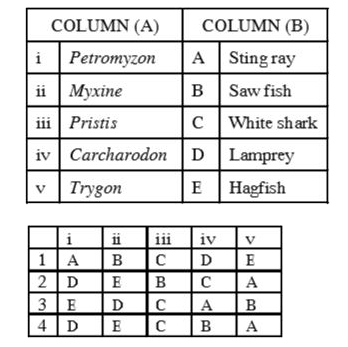 View Solution
View SolutionMatch the following columns and choose the correct answer from the options given below -
 View Solution
View SolutionMatch the following columns and choose the correct answer from the option given below.
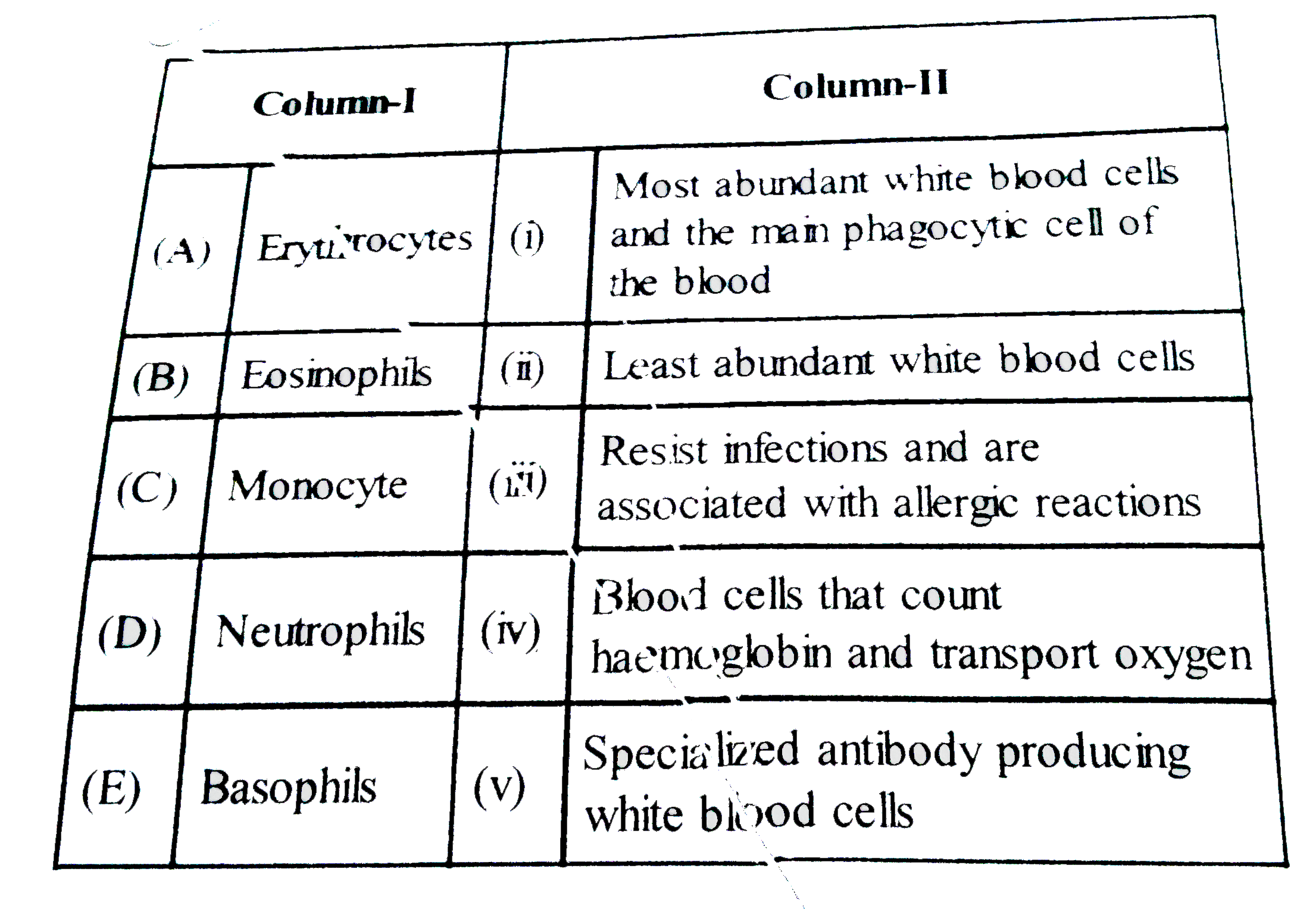 View Solution
View SolutionMatch the following columns and choose the correct answer from the option given below.
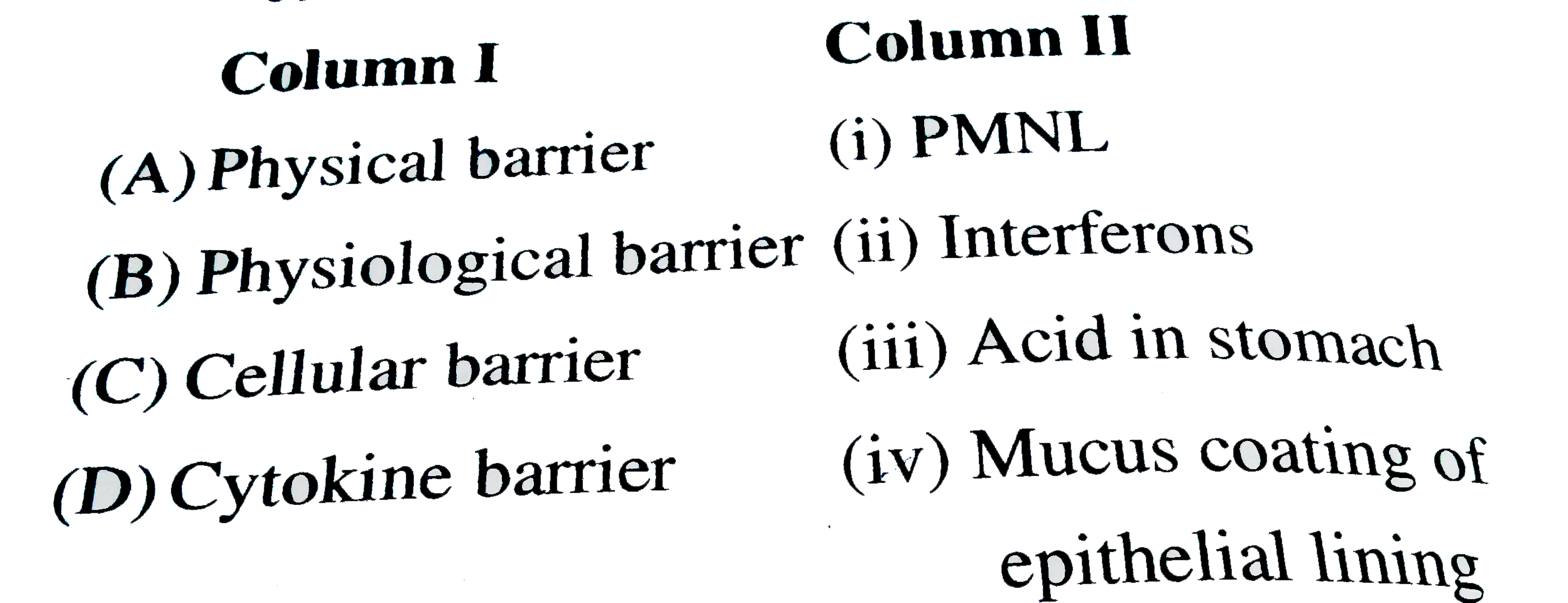 View Solution
View SolutionWhich of the following statements is not correct ? Choose the correct options from the given below.
View SolutionWhich of the following statements is not correct ? Choose the correct options from the given below.
View SolutionMatch list ‘A’ with the list ‘B’ and list ‘C’ and choose the correct answer from the codes given below :
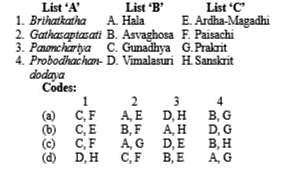 View Solution
View Solution


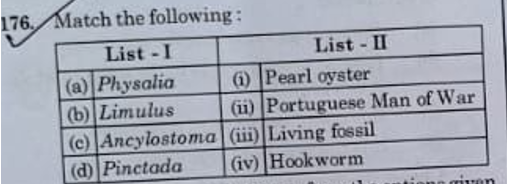 Choose the correct answer from options given below
Choose the correct answer from options given below